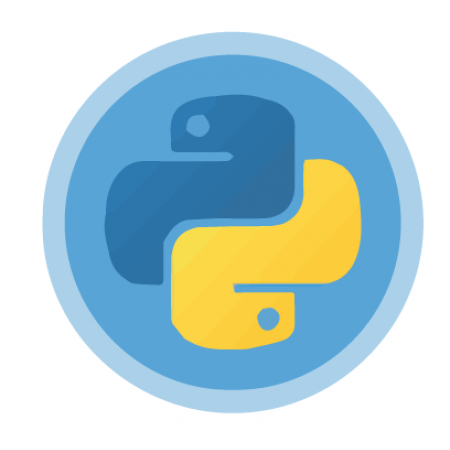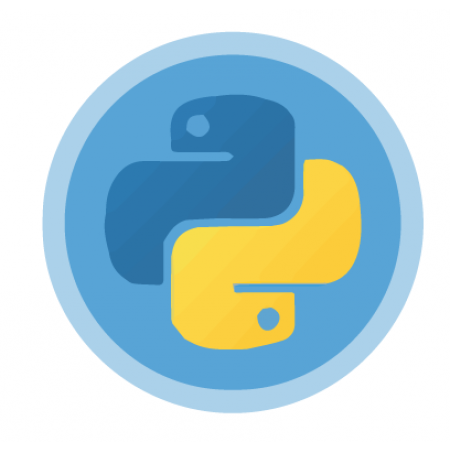x
Search results for 'physical science'
Show Filter
Video Game Design 1 Semester 1 (Project Based Learning)
The CodeHS video game design curriculum teaches the foundations of creating video games in JavaScript. The course utilizes a project-based learning approach. The content is fully web-based, with students writing and running code in the browser. Lessons consist of video tutorials, short quizzes, example programs to explore, and written programming exercises, adding up to over 100 hours of hands-on programming practice in total. Students write and run JavaScript programs in the browser using the CodeHS editor.
$450.00
Web Design 1 (Project Based Learning)
Web Design 1 is a CodeHS course that teaches students how to build their own web pages. Students will learn the languages HTML and CSS, and will create their own live homepages to serve as portfolios of their creations. By the end of this course, students will be able to explain how web pages are developed and viewed on the Internet, analyze and fix errors in existing websites, and create their very own multi page websites. Students will learn the foundations of user interface design, rapid prototyping and user testing, and will work together to create professional, mobile responsive websites. The course utilizes a project-based learning approach. The content is fully web-based, with students writing and running code in the browser. Lessons consist of video tutorials, short quizzes, example programs to explore, and written programming exercises.$450.00
Introduction to the Internet
TCH006E2 Introduction to the Internet is a CodeHS introductory computer science course that teaches the basics of designing a web page, and how information is represented digitally and sent over the Internet. Students will create a personal portfolio website showing projects they build throughout the course. With a unique focus on creativity, problem solving and project based learning, Introduction to the Internet gives students the opportunity to explore several important topics of computing using their own ideas and creativity to develop an interest in computer science that will foster further endeavors in the field. Each lesson includes at least one formative short multiple-choice quiz. At the end of each unit, students take a summative multiple choice unit quiz that assesses their knowledge of the concepts covered in the unit.$450.00
AP® Environmental Science Semester 2
The course provides students with the scientific principles, concepts, and methodologies required to understand the interrelationships of the natural world. The course draws upon various disciplines, including geology, biology, environmental studies, environmental science, chemistry, and geography in order to explore a variety of environmental topics. Topics explored include natural systems on Earth; biogeochemical cycles; the nature of matter and energy; the flow of matter and energy through living systems; populations; communities; ecosystems; ecological pyramids; renewable and nonrenewable resources; land use; biodiversity; pollution; conservation; sustainability; and human impacts on the environment. AP Environmental Science prepares students for the AP exam and for further study in science, health sciences, or engineering.
The AP Environmental Science course provides a learning experience focused on allowing students to develop their critical thinking skills and cognitive strategies. Scientific inquiry skills are embedded in the direct instruction, wherein students learn to ask scientific questions, deconstruct claims, form and test hypotheses, and use logic and evidence to draw conclusions about the concepts.
Students perform hands-on labs and projects that give them insight into the nature of science and help them understand environmental concepts, as well as how evidence can be obtained to support those concepts. Virtual lab activities enable students to engage in investigations that would otherwise require long periods of observation at remote locations and to explore simulations that enable environmental scientists to test predictions. During both hands-on and virtual labs, students form hypotheses; collect, analyze, and manipulate data; and report their findings and conclusions. Throughout this course, students are given an opportunity to understand how biology, earth science, and physical science are applied to the study of the environment and how technology and engineering are contributing solutions for studying and creating a sustainable biosphere.
$450.00
AP® Environmental Science Semester 1
The course provides students with the scientific principles, concepts, and methodologies required to understand the interrelationships of the natural world. The course draws upon various disciplines, including geology, biology, environmental studies, environmental science, chemistry, and geography in order to explore a variety of environmental topics. Topics explored include natural systems on Earth; biogeochemical cycles; the nature of matter and energy; the flow of matter and energy through living systems; populations; communities; ecosystems; ecological pyramids; renewable and nonrenewable resources; land use; biodiversity; pollution; conservation; sustainability; and human impacts on the environment. AP Environmental Science prepares students for the AP exam and for further study in science, health sciences, or engineering.
The AP Environmental Science course provides a learning experience focused on allowing students to develop their critical thinking skills and cognitive strategies. Scientific inquiry skills are embedded in the direct instruction, wherein students learn to ask scientific questions, deconstruct claims, form and test hypotheses, and use logic and evidence to draw conclusions about the concepts.
Students perform hands-on labs and projects that give them insight into the nature of science and help them understand environmental concepts, as well as how evidence can be obtained to support those concepts. Virtual lab activities enable students to engage in investigations that would otherwise require long periods of observation at remote locations and to explore simulations that enable environmental scientists to test predictions. During both hands-on and virtual labs, students form hypotheses; collect, analyze, and manipulate data; and report their findings and conclusions. Throughout this course, students are given an opportunity to understand how biology, earth science, and physical science are applied to the study of the environment and how technology and engineering are contributing solutions for studying and creating a sustainable biosphere.
$450.00
Computer Science Principles (Project Based Learning)
TCH220E2-PBL Computer Science Principles is a CodeHS course that introduces students to the foundational concepts of computer science and explores the impact computing and technology have on our society. The course utilizes a project-based learning approach. With a unique focus on creative problem solving and real-world applications, the CodeHS Computer Science Principles course gives students the opportunity to explore several important topics of computing using their own ideas and creativity, use the power of computing to create artifacts of personal value, and develop an interest in computer science that will foster further endeavors in the field.$450.00
Veterinary Science (OTH033)
As animals play an increasingly important role in our lives, scientists have sought to learn more about their health and well-being. Taking a look at the pets that live in our homes, on our farms, and in zoos and wildlife sanctuaries, this course examines some of the common diseases and treatments for domestic animals. Toxins, parasites, and infectious diseases affect not only the animals around us, but at times, us humans as well! Through veterinary medicine and science, the prevention and treatment of diseases and health issues are studied and applied.$450.00
Animation 1, Semester 2 (TCH083B)
This is the second semester of a two semester course. Have you ever watched a cartoon or played a video game where the animation of characters captivated you so much you wanted to create your own? If so, it$450.00
Animation 1, Semester 1 (TCH083A)
This is the first semester of a two semester course. Have you ever watched a cartoon or played a video game where the animation of characters captivated you so much you wanted to create your own? If so, it$450.00
World of Computing (TCH007DE3)
World of Computing is a CodeHS introductory computer science course introducing the basics of programming with Karel the Dog, and the history and impact of computing. Students will learn to code using blocks to drag and drop, but they can switch between blocks and text as desired. With a unique focus on creativity, problem solving, and project based learning, World of Computing gives students the opportunity to explore several important topics of computing using their own ideas and creativity to develop and interest in computer science that will foster further endeavors in the field. Each lesson includes at least one formative short multiple-choice quiz. At the end of each unit, students take a summative multiple choice unit quiz that assesses their knowledge of the concepts covered in the unit.$450.00
Summit Physical Education, Semester 2 (OTH020B)
This pass/fail course combines online instructional guidance with student participation in weekly cardiovascular, aerobic, muscle- toning, and other activities. Students fulfill course requirements by keeping weekly logs of their physical activity. The course promotes the value of lifetime physical activity and includes instruction in injury prevention, nutrition, and yet, and stress management$450.00
NEED MORE INFO

THANK YOU!
We have received your inquiry and you will start to receive additional information about our school offerings and programs. An enrollment consultant will contact you shortly.






The CodeHS video game design curriculum teaches the foundations of creating video games in JavaScript. The course utilizes a project-based learning approach. The content is fully web-based, with students writing and running code in the browser. Lessons consist of video tutorials, short quizzes, example programs to explore, and written programming exercises, adding up to over 100 hours of hands-on programming practice in total. Students write and run JavaScript programs in the browser using the CodeHS editor.